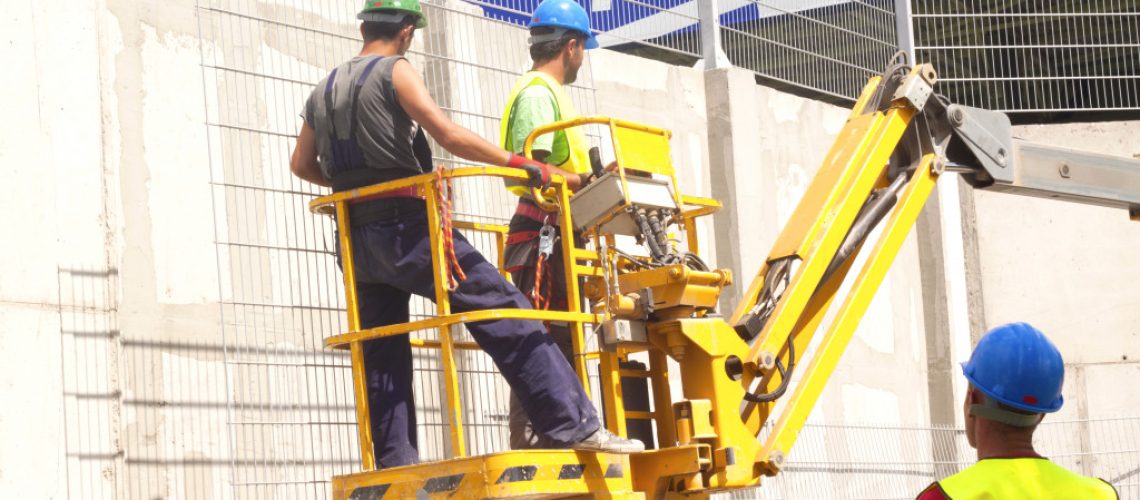- Invest in quality equipment to ensure your projects are completed quickly and efficiently.
- Investing in the right software and technology helps streamline operations and improve customer relationships.
- Build a talented team with continuing education opportunities, such as industry certifications or courses in the latest technology and software.
- Have comprehensive insurance coverage that meets all relevant regulations and laws for financial protection should an accident occur on-site.
- Establish business relationships with suppliers, subcontractors, architects, and even competitors for future collaborations or support.
You’ve made a thorough business plan, been given your permits and licenses, and are ready to start your new construction business. What investments should you make early to ensure long-term success? Read on to learn the five essential early investments for your construction business. All of these will help ensure that your business is able to grow successfully over time and become a leader in its field.
1. Invest in Quality Equipment
Quality equipment is vital if you want to do quality work and remain competitive in the market. Quality tools are stronger, last longer, and can handle more challenging jobs than their cheaper counterparts. Investing in quality equipment also saves time and money, as higher-quality equipment works faster and requires less maintenance. When buying high-end equipment, be sure to purchase from reputable manufacturers with a good warranty and an impeccable reputation.
Types of equipment
Some of the most commonly needed equipment in the construction industry are cranes, backhoes, bulldozers and excavators. These are essential investments to make early on, as they can be expensive but will play a vital role in the success of your business. Not only do these more significant pieces of equipment make jobs more manageable, but they also ensure that the job is done quickly and efficiently.
Qualified operators
Another factor to consider about investing in high-quality equipment is that they typically require specialized training, certification and qualified operators. Getting professional help from reliable OSHA qualified riggers ensures your team can use the new equipment safely and also gives you access to experienced professionals with knowledge of the tools and industry. Qualified operators also do a great job of helping prevent costly accidents or mistakes on-site.
2. Invest in the Right Software and Technology
When starting a construction business, investing in the right software and technology should be one of your top priorities. The right software can help you streamline operations, reduce paperwork, increase efficiencies, and improve customer relationships without breaking the bank. Look for enterprise-level software that helps with project management, accounting, invoicing, payroll, and customer relationship management.
Cloud solutions

Consider investing in cloud-based solutions that will make it easier for you to work from anywhere and share documents with clients or other members of your team. Investing in cloud solutions right from the get-go also ensures that your data is backed up and secure, as cloud solutions often have better security features than on-premise systems.
Drones and 3D model software
Another great investment to consider early on is drones and 3D model software. Drones are becoming more commonplace in the construction industry, as they can provide valuable insights into site conditions and help you finish projects faster. They also have considerable cost savings potential due to their ability to capture real-time data for analysis and layout accuracy. The use of 3D models provides an easy way to communicate with your team, giving them a better visual of what work needs to be done and how it should be done.
3. Invest in a Skilled Team
You’ll also need a talented team to help your construction business succeed. Find qualified professionals who can bring the skills and experience required to deliver quality projects on time and within budget. Look for people who have the right mindset: they should be creative problem-solvers who can think outside the box when faced with challenges.
Investing in employees’ professional development is just as important as hiring them. Offer continuing education opportunities, such as industry certifications or courses in the latest technology and software. This will ensure that your team is up-to-date with the latest trends in construction and can handle any job thrown their way.
4. Invest in Insurance

Insurance is a must for any construction business—especially those working with hazardous materials or at heights. Insurance provides you with financial protection in case of an accident on site and gives customers peace of mind knowing that their project is in good hands. Make sure you have comprehensive coverage that meets all relevant regulations and laws and covers any liabilities should something go wrong during a project.
5. Invest in Business Relationships
In order to succeed in the long term, it is essential to invest in relationships with other businesses that can benefit future projects. Building relationships with suppliers, subcontractors, architects, and even competitors is vital, so you know who to call when you need help. These partnerships create a network of people with the same goals and objectives as you, making collaborating easier on projects or providing mutual support during challenging times.
To Wrap Things Up
Investing early in quality equipment, technology, training, insurance and business relationships is crucial for any construction business looking to establish itself and thrive in the industry. By allocating resources appropriately to each of these areas from day one, companies can ensure their success by preparing for potential risks while improving efficiency and productivity. You can set your business up for long-term success with the right investments. Invest wisely and reap the rewards in the future.

